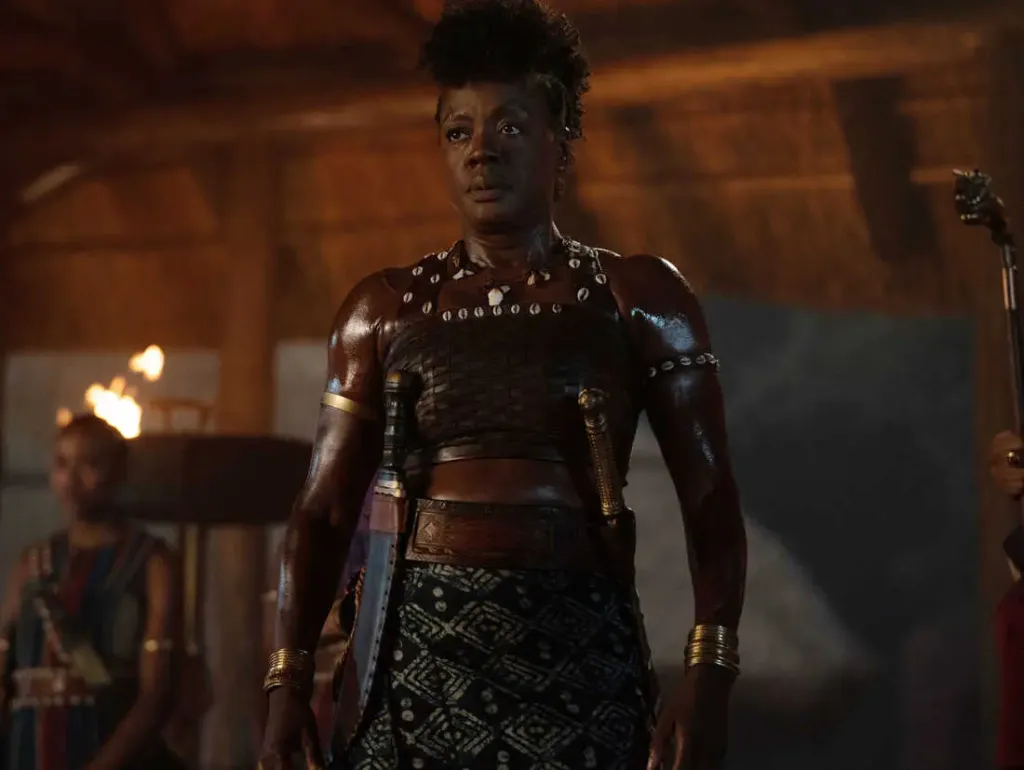Viola Davis rules in The Woman King

Viola Davis owns “The Woman King”, a movie every bit as majestic and monumental as its title implies.
Davis plays Nanisca, the ferocious, forbidding general of the Agojie, the legendary women’s fighting force that helped defend the West African kingdom of Dahomey.
Set in 1823, “The Woman King” spins a fictional tale rooted in the real-life Dahomey Amazons who were among the most feared warriors of the era.
In this stirring tale, written by Maria Bello and Dana Stevens, Nanisca fights not only external foes – the Oyo Empire intent on destroying the reign of Dahomey’s King Ghezo (John Boyega) – but her own country’s involvement in the transatlantic trade of enslaved people, which its supporters see as a way for Africans to benefit from commerce but which she sees as a dark circle, entrapping her people in cycles of violence, oppression and self-hatred.
Whether Nanisca’s dilemma is literally true to life is beside the point in “The Woman King”, which takes its rousing action-and-adventure cues from such classics as “Braveheart”, “Gladiator” and the spectacular sword-and-sandal pictures of the 1950s, and elaborates on imaginative universes already primed by the likes of “Black Panther”, “Wonder Woman” and, more recently “The Northman”.
In the hands of director Gina Prince-Bythewood, the combination is a winning one: “The Woman King” pulses with energy, tightly coiled intensity and Shakespearean filial drama, given added potency by Davis, who imbues Nanisca with the gravitas and unflinching focus that have become her signatures.
Part of what makes Nanisca such an appealing heroine is that, for all her strength and finesse, she isn’t perfect: As the film opens, she returns to Dahomey with another victory under her belt (and some captive women to train as new soldiers), but she’s showing signs of wear, her muscles aching, her body scarred, her eyes made weary of seeing too much war.